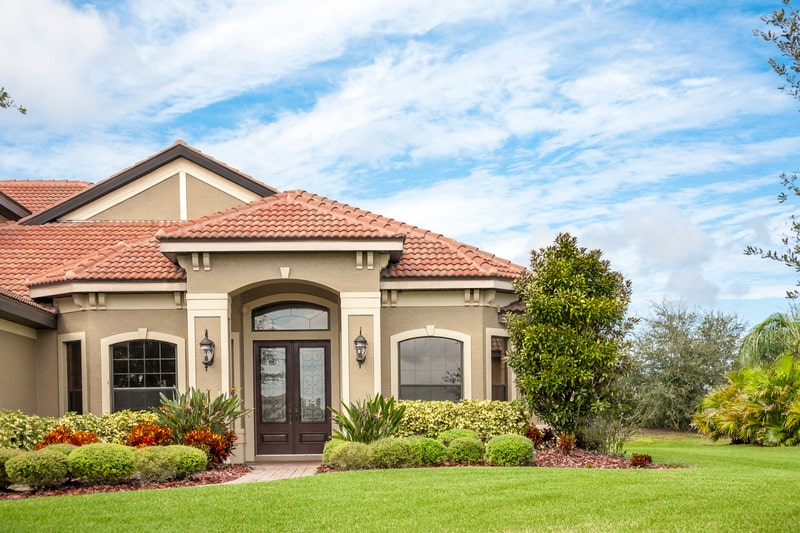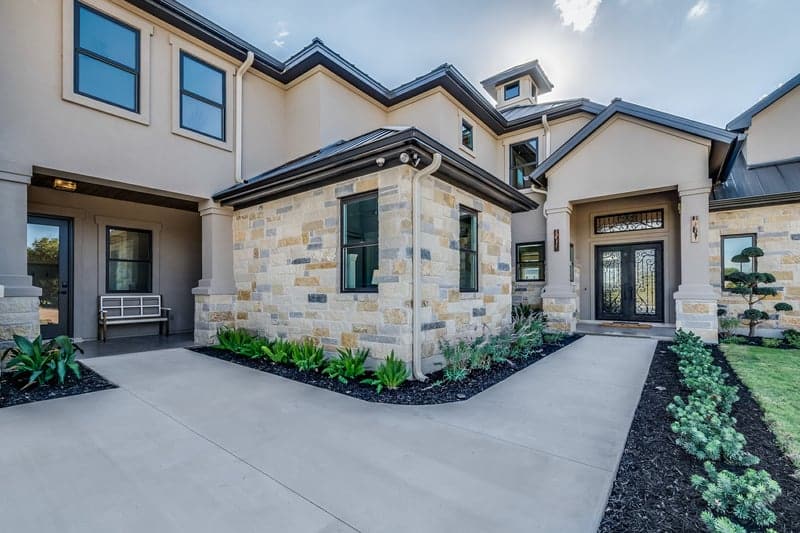DIY vs. Professional Home Window Tinting for Privacy
With rising interest in home improvement projects, window tinting has become a popular choice for homeowners looking to boost privacy and energy efficiency. It offers a sleek, modern look while providing numerous benefits. But the big question remains—should you tackle window tinting yourself or hire a professional? This blog post explores DIY vs Professional home window tinting for privacy, both routes to help you make an informed decision.
Understanding Home Window Tinting
Different Types of Home Window Films Available
When it comes to home window tinting, there are several types of window films to consider, each catering to different needs and preferences:
- Solar Control Films: These films are designed to reduce heat gain, glare, and ultraviolet (UV) radiation. They are ideal for improving energy efficiency and comfort within the home.
- Privacy Films: As the name suggests, these films provide enhanced privacy by obstructing the view from the outside while still allowing natural light to pass through.
- Decorative Films: These films come in various patterns, colors, and frosted designs, adding an aesthetic touch to your windows along with a degree of privacy.
- Security Films: These thicker films offer added protection by reinforcing your windows and making them more difficult to shatter, thereby enhancing home security.
Advantages of Window Tinting Beyond Just Privacy
While privacy is a significant benefit of window tinting, there are several other advantages that make it a worthwhile investment:
- Energy Efficiency: By reducing heat gain from the sun, window tinting helps lower cooling costs during the summer months and retains heat during the winter, leading to energy savings.
- UV Protection: Window films block up to 99% of harmful UV rays, protecting your skin and reducing the risk of fading on furniture, carpets, and artwork.
- Glare Reduction: Tinting minimizes glare from sunlight, making it easier to watch television, work on a computer, or carry out other indoor activities without straining your eyes.
- Enhanced Security: Security films add an extra layer of protection, making it more difficult for intruders to break through your windows.
- Aesthetic Appeal: Decorative films can enhance the overall look of your home, adding style and personality to your windows while maintaining functionality.
Understanding the various types of window films and their benefits can help you choose the right option for your home, whether you decide to DIY or hire a professional.

DIY Window Tinting: The Pros and Cons
Choosing to tint your home windows yourself can be a tempting option for many reasons. However, it’s essential to weigh both the advantages and disadvantages before embarking on a DIY project.
Pros
- Cost Savings: One of the primary benefits of DIY window tinting is cost savings. By doing the work yourself, you can save on the labor costs associated with hiring a professional, making it a budget-friendly option.
- Sense of Accomplishment: Completing a DIY project can provide a sense of accomplishment and pride. Knowing you improved your home’s privacy and energy efficiency through your efforts can be gratifying.
- Flexible Scheduling: When you do it yourself, you have the flexibility to work on your schedule without coordinating with a professional installer. This can be particularly beneficial if you have a busy lifestyle.
- Learning Experience: DIY projects offer valuable learning experiences, allowing you to develop new skills and knowledge that could be beneficial for future home improvement endeavors.
Cons
- Time-Consuming: DIY window tinting can be time-consuming, especially if you lack experience. Measuring, cutting, and applying the film requires precision and patience to achieve a professional-looking result.
- Quality of Installation: While DIY can save money, it may come at the cost of quality. Bubbles, creases, or misalignments in the film can result in a less-than-perfect finish that not only looks unappealing but may also compromise the film’s effectiveness.
- Limited Warranty: Many professional installations come with warranties that cover the film and installation. DIY projects often lack such guarantees, which means any issues down the line may require you to spend additional time and money to fix them.
- Initial Investment: While DIY can be cost-effective, there is an initial investment in quality tools and materials. Ensuring you purchase the right type and quality of film is crucial, and professional-grade tools can be expensive.
Before deciding to DIY or go professional, it’s essential to consider these pros and cons to determine the best approach for your specific situation and needs.
Professional Window Tinting: Benefits and Considerations
Opting for professional window tinting services can offer a range of benefits that might make it a more appealing choice for many homeowners. Here are several reasons to consider going the professional route and key factors to keep in mind:
Benefits
- Expertise and Precision: Professional installers have the knowledge and experience to ensure a flawless application. Their expertise reduces the risk of bubbles, creases, or imperfections, resulting in a smooth, professional finish that enhances both the appearance and effectiveness of the window film.
- High-Quality Materials: Professionals often have access to higher-quality window films and tools that may not be readily available to consumers. These premium products can offer better performance, durability, and longer-lasting results.
- Time Efficiency: Hiring a professional saves you time and effort. Professionals can complete the job more quickly and efficiently, freeing you up to focus on other priorities.
- Warranty and Guarantees: Many professional window tinting services offer warranties that cover both the film and the installation. This means that if any issues arise, such as peeling or bubbling, they will be addressed promptly and at no additional cost to you.
- Customization Options: Professional installers can provide personalized recommendations based on your specific needs and preferences. They can help you choose the best type and shade of film for your home, ensuring optimal performance and aesthetic appeal.
Considerations
While the benefits of professional window tinting are clear, there are also some considerations to keep in mind before making your decision:
- Cost: Professional window tinting services can be more expensive compared to a DIY project. It’s important to budget accordingly and obtain quotes from multiple providers to ensure you are getting a fair price.
- Scheduling and Availability: Coordinating with a professional installer requires aligning schedules, which may not always be convenient. Be sure to book in advance and inquire about the availability of the service provider.
- Research and Reviews: Not all professional services are created equal. It’s crucial to do thorough research, read reviews, and ask for references to ensure you are hiring a reputable and skilled installer who can deliver high-quality results.
- Long-Term Investment: While the upfront cost might be higher, professional window tinting can be seen as a long-term investment. The durability and warranties associated with professional installations often mean fewer issues and maintenance costs over time.
By considering these benefits and factors, you can make an informed decision about whether professional window tinting is the right choice for your home.

Key Factors to Consider Before Making a Decision
When deciding between DIY and professional window tinting, it’s essential to consider several key factors to ensure you make the best choice for your specific circumstances:
- Window Types and Sizes: The size and type of windows in your home can significantly impact your decision. Larger windows or those with unique shapes may be more challenging to tint yourself and could necessitate professional assistance to achieve a seamless finish. Additionally, certain window materials may require specific types of film or application techniques.
- Local Regulations and Warranty Considerations: It’s crucial to be aware of any local regulations concerning window tinting, as these can vary by region and may influence your decision. For instance, there might be restrictions on the level of tint allowed. Moreover, consider the warranty implications; professional installations often come with warranties that protect your investment, whereas DIY projects typically lack such coverage.
- Budget and Long-Term Goals for Home Improvement: Window tint cost is a significant factor when deciding your approach. While DIY is generally more cost-effective upfront, investing in professional services might align better with long-term home improvement goals due to higher-quality materials and installation. Assess whether you are looking for a quick fix or a long-lasting solution that enhances your home’s value and efficiency over time.
By thoroughly evaluating these factors, you can determine the most suitable window tinting option for your home, balancing cost, quality, and long-term benefits.
Conclusion
Both DIY and professional window tinting have their advantages and considerations. With the right tools, knowledge, and patience, a DIY project can be a cost-effective way to enhance your home’s appearance and energy efficiency. However, for those seeking precision, expertise, and long-term benefits, professional window tinting might be the better choice. Ultimately, it boils down to your budget, goals, and preferences. Carefully considering these factors will help you make an informed decision that best suits your specific situation. Keep in mind that whatever option you choose; proper tint installation is crucial for optimal performance and longevity of your window film.
Sun Guard Tint
https://www.google.com/maps?cid=5789725123746519054
7879 S 1530 W #400, West Jordan, UT 84088, United States
(801) 657-9260
https://sunguardtint.com/